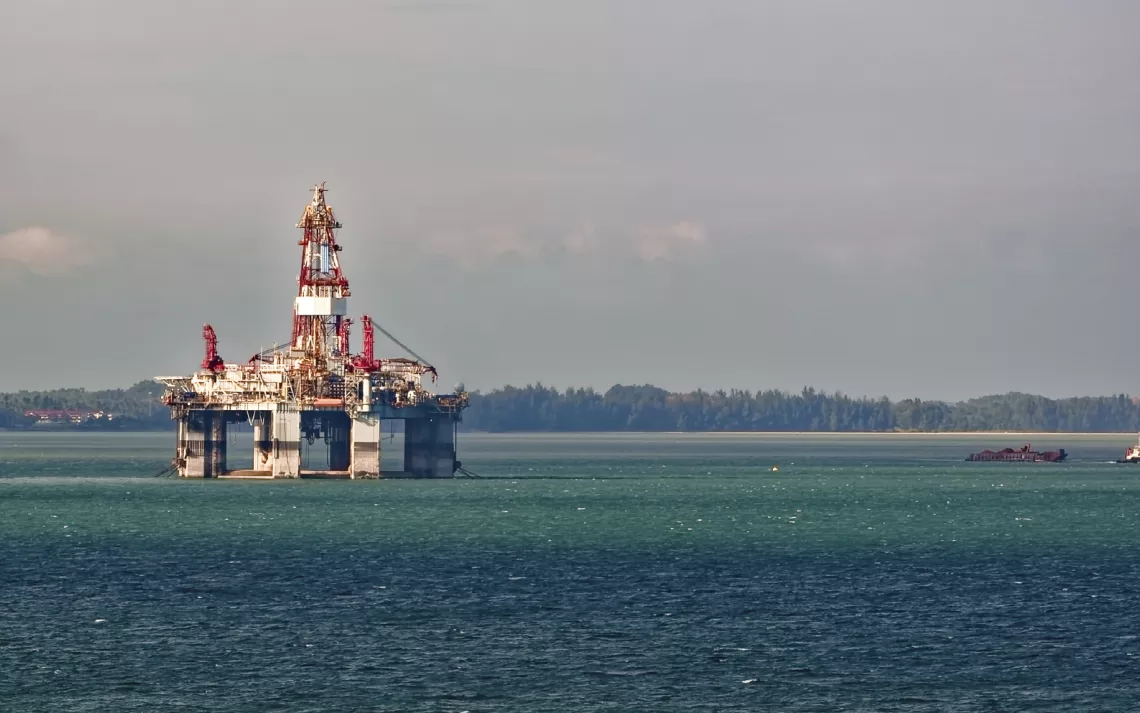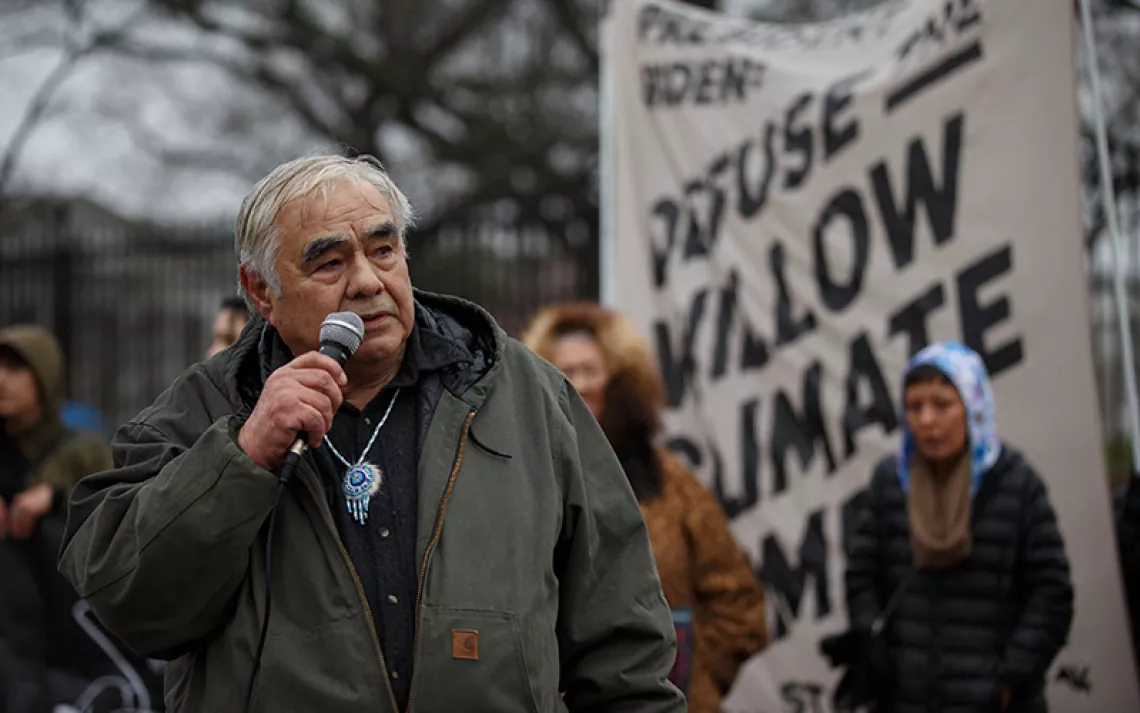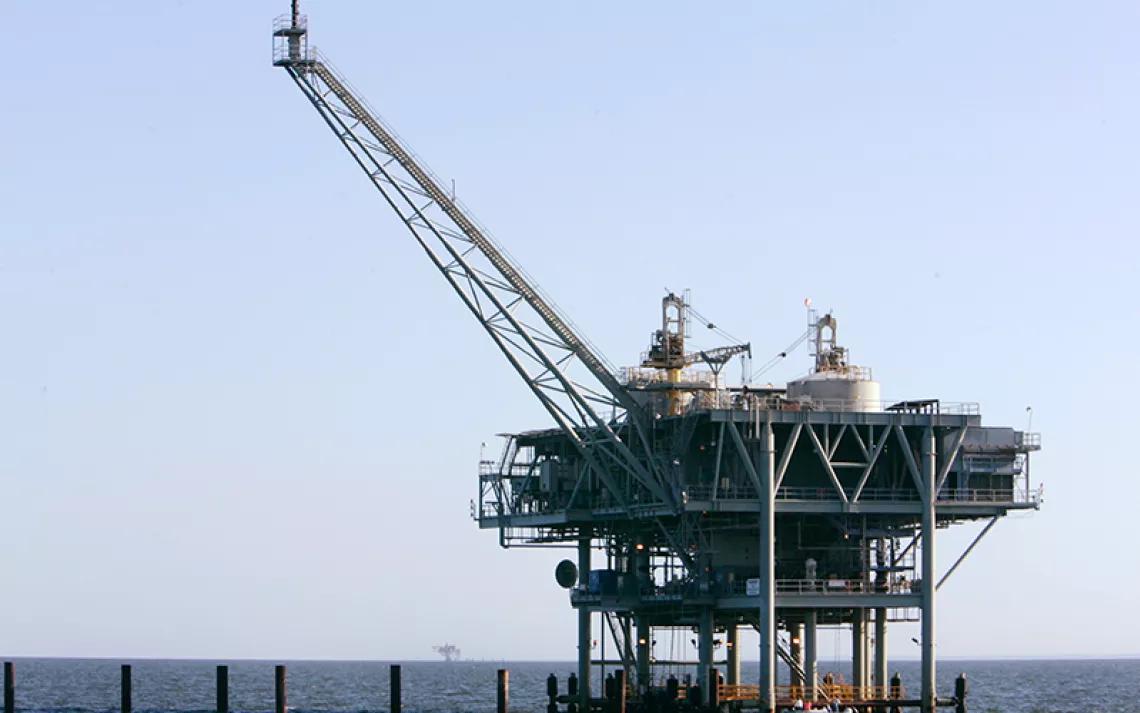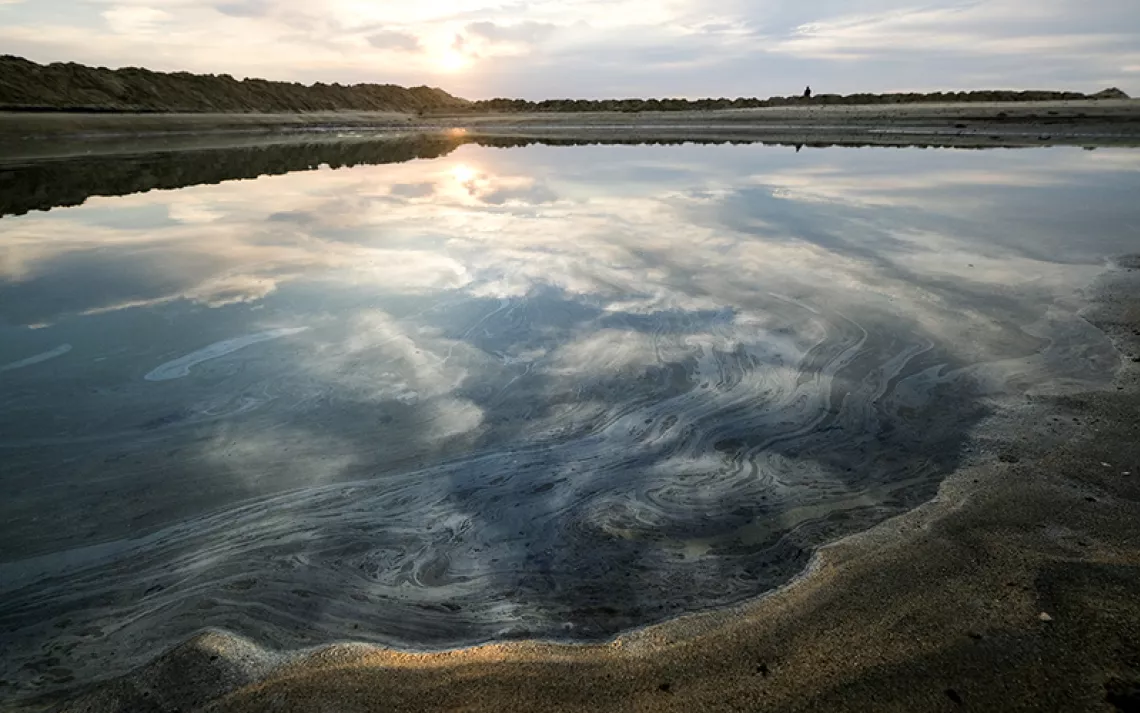The Shifting Politics of Offshore Drilling
Update: On March 15, the Obama administration unveiled a new proposal for offshore oil and gas drilling in U.S. waters. While the new plan will allow for continued offshore drilling in the Gulf of Mexico and some parts of the Arctic Ocean, the Interior Department is retreating from its earlier proposals that would have opened up large sections of the Atlantic Coast to new drilling. Widespread public opposition to drilling off the Atlantic seaboard played a significant role in the administration's position. As Interior Secretary Sally Jewell said in making the announcement, "When you factor in conflicts with national defense, economic activities such as fishing and tourism, and opposition from many local communities, it simply doesn't make sense to move forward with any lease sales in the coming five years."
When it comes to offshore oil and gas drilling, a politician’s party affiliation is normally a good indicator of his or her views on this controversial issue. For the most part, Republicans support drilling in U.S. waters. More often than not, Democrats (at least outside of Louisiana) are skeptical of, or outright opposed to, more offshore drilling. Case in point: In late February, Virginia Democratic lieutenant governor Ralph Northam wrote to federal officials warning of the risks to tourism, fishing, and navy operations should proposed new offshore oil drilling be permitted.
But the politics of offshore oil and gas drilling may be changing. Virginia governor Terry McAuliffe, a Democrat, is pro-drilling (provided the Feds offer the same revenue-sharing deal that Louisiana has). And some elected Republicans are going on record against offshore leases, citing their risk to the environment and the recreation and tourism jobs that depend on seascapes and beaches unblemished by the fossil fuel industry.
This past fall, conservative Republican representative (and former South Carolina governor) Mark Sanford, whose district includes much of the Palmetto State’s coastline, announced his objection to new drilling off his state. Standing next to climate activist Bill McKibben, an evangelical minister, and others below an 85-foot inflatable whale in front of the U.S. Capitol, Sanford helped to launch the anti-drilling, pro-clean-energy Sea Party Coalition. (My organization, Blue Frontier, is a founding member of this group, which also includes the Sierra Club.) Sanford declared, “While we like whales and marine life, what we're really talking about is upholding the democratic traditions our founding fathers gave us 200 years ago.”
The next day, South Carolina's largest newspaper, the Post and Courier, ran the headline “Mark Sanford, From Tea Party to Sea Party.” But Sanford isn’t alone among South Carolinians in his anxiety about offshore drilling. All coastal towns and cities in South Carolina have now passed resolutions against either acoustic surveys (which are necessary for underwater oil and gas exploration but which can harm marine life) or oil drilling. Some 100 other municipalities from Florida to New Jersey have passed similar resolutions.
Another surprising opponent of offshore drilling is Republican Curt Clawson. He’s a member of the Freedom Caucus, which represents Fort Myers and Naples on Florida’s Gulf Coast, and he’s been adamant against drilling, saying, “Fish don't like oil spills and neither do I. There's an intersection with economic health and growth. It's an ecology issue, a lifestyle issue, and an economic issue. Destroying the Gulf is not good on any level.”
It has been two years since the Obama administration proposed new offshore surveying and drilling in the Arctic Ocean, along the Atlantic Coast, and in previously untapped parts of the Gulf of Mexico. But the administration appears to have misjudged political trend lines. Offshore drilling could be the next Keystone XL pipeline, an emblematic fight over our energy future that ignites citizen action. Only there’s one major difference: In this instance, some coastal Republicans are also against the idea of more oil infrastructure.
Unlike in 2008, when Sarah Palin made “Drill Baby Drill” a rallying cry for Republicans, today’s fight over offshore oil is proving to be as much about business, place, and faith as it is about traditional political alignments. The surprising battle lines—coastal communities pitted against statehouse elites, with Republicans and Democrats sometimes aligned together—may also have an unpredictable impact on key 2016 swing states such as Virginia and Florida.
Offshore oil could become one of the major environmental and energy issues of the 2016 election. Even in the landlocked Rocky Mountains, a group called the Colorado Ocean Coalition (yes, there’s such a thing) put out a press release just before the February primaries linking inland fracking with offshore drilling and asking citizens to “vote the coast.” In Louisiana, America’s oil colony, a coalition including climate activists and environmental justice groups is hoping to shut down a lease sale for new drilling sites in the Gulf scheduled to take place in New Orleans’s Superdome. And in Washington, D.C., there have been several citizen lobby days against offshore drilling since last spring; a petition given to the White House was signed by 2 million citizens.
After Shell Oil hit a dry hole in the Chukchi Sea last September—it invested $7 billion in the project, stirred up a hornet’s nest of opposition, and suffered two exploration accidents, one of which coast guard investigators attributed to negligence—the company announced it was giving up fossil fuel exploration in the Arctic Ocean (for now). The Obama administration then cancelled two other pending Arctic Ocean lease sales set for 2017–22.
Since then, two strategies have emerged among those battling offshore oil drilling. One approach rests on the hope that President Obama, increasingly committed to addressing climate change, will reverse course in the final days of his administration and also withdraw his Atlantic lease sales. Others believe that while it’s possible that the president could cancel the leases, it’s more likely that the next president will make the decision (and the bigger decision about whether to end all fossil fuel leasing offshore).
To date, the leading candidates in the presidential race have taken varied positions.
On the Democratic side, Hillary Clinton said in a December interview on a South Carolina radio show that she’s “very skeptical about the need or the desire for us to pursue offshore drilling off the coast of South Carolina” and off the southeast. Asked at a campaign event on February 9 if she would “stop oil drilling in the Arctic, the Atlantic, and the Gulf,” Clinton replied, “I’ve already said that I will stop it in the Arctic and the Atlantic.”
Bernie Sanders has said that he would block all offshore oil and gas development.
On the Republican side, Donald Trump’s campaign has said it has not taken an official position on the issue. However, Trump’s previous statements indicate that he would support expanded offshore drilling. Then in a February 13 interview with a Florida reporter, he said, “It would be a little bit of a shame [to expand drilling closer to Florida], because there’s so much fracking, and there’s so much oil that we have now that we never thought possible. That’s an issue I’d absolutely study and do the right thing.”
Ted Cruz is the sponsor of a bill called the American Energy Renaissance Act, which, among other things, would expand offshore drilling.
Marco Rubio’s campaign platform calls for more offshore oil and gas drilling.
Of course, for millions of business people, tourists, mariners, and homeowners who flock to Atlantic coast beaches every summer for some of the best days of their lives, disputes over political strategy or whether offshore drilling is an ocean issue or a climate issue are beside the point. They just want it stopped, hopefully forever. Many also want our leaders to deal with the rising seas and more powerful storms, coastal flooding, and extreme weather that are becoming a part of our lives.
Retiring congressman Sam Farr of Monterey, California, says, “California is the only state where you can get elected or lose your job based on your position on coastal protection and offshore oil.” But that statement may now also hold true for presidential candidates and others looking to win in states like Virginia, Delaware, North Carolina, and Florida next fall. The degree to which people “vote the coast” will impact not just the outcome of the presidential election but all of our futures, from sea to shining sea.
What You Can Do
The oil and gas industry is going to fight hard to lock in five more years of dangerous drilling off our coasts. We know we don't have five more years to keep investing in dirty fuels if we want to stop the worst impacts of climate disruption. This decision is about our future, so none of us can sit this one out.
Act now to protect the Arctic and the Gulf of Mexico from years of dangerous offshore oil drilling.
 The Magazine of The Sierra Club
The Magazine of The Sierra Club




